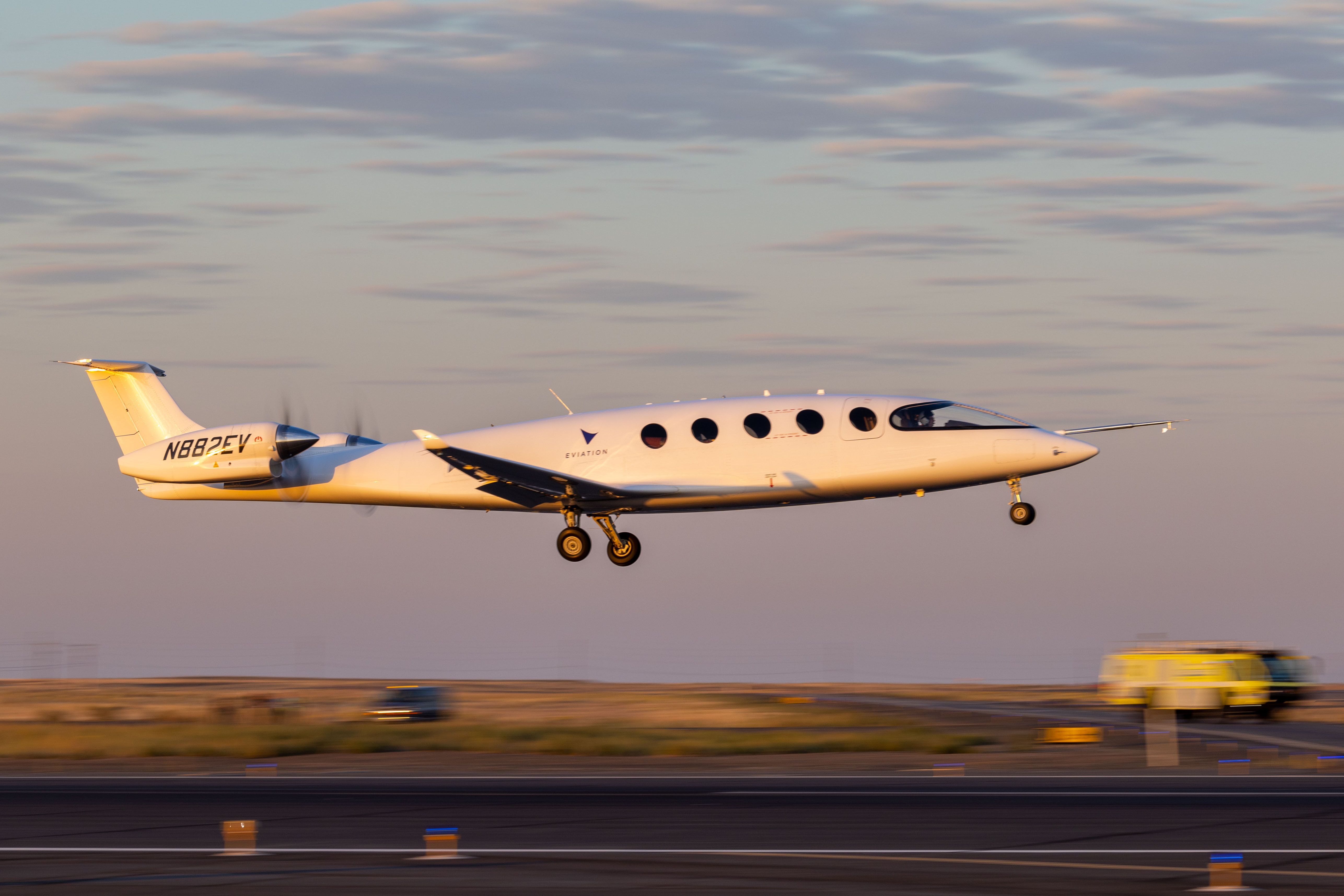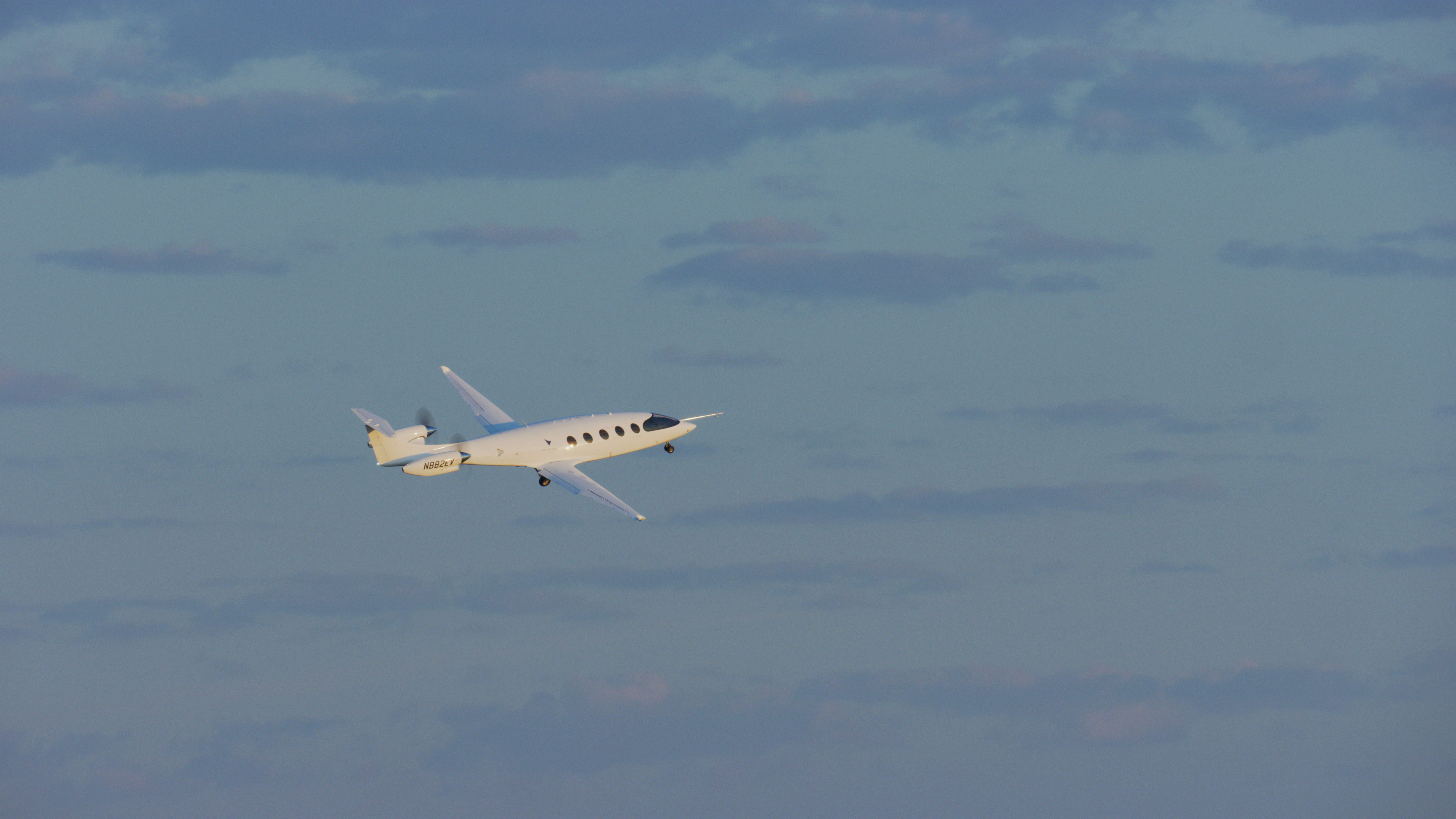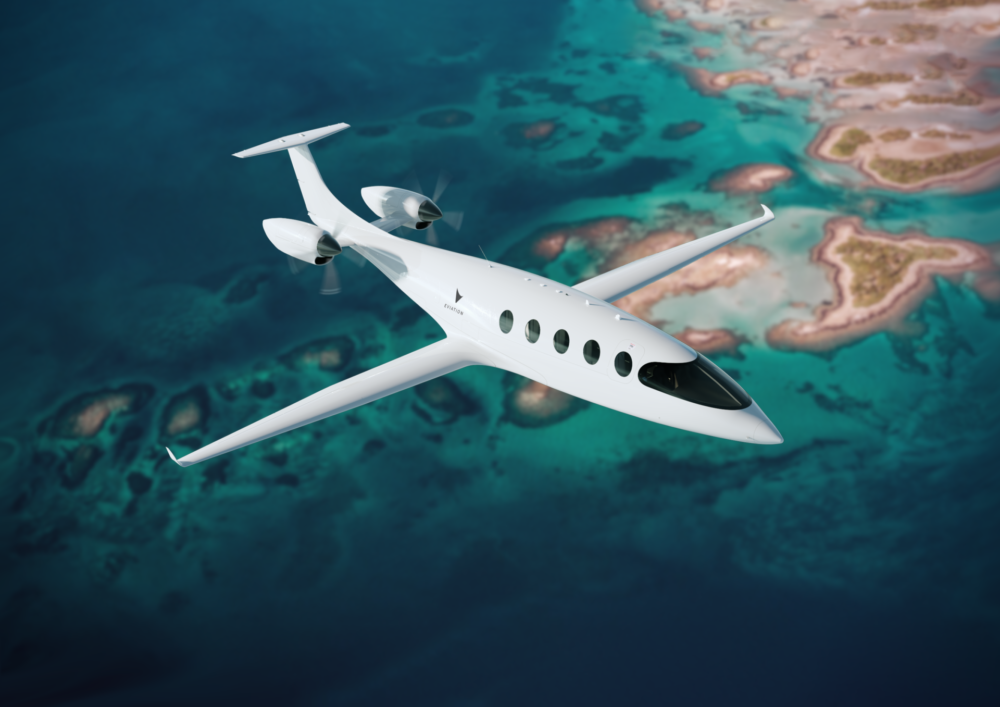Last week, a groundbreaking new airplane took to the skies for the first time. Alice is a nine-seat commuter plane developed by Eviation, designed to fly on 100% electricity. It performed a perfect first flight, airborne for around nine minutes in the skies above Moses Lake.
Speaking exclusively to Simple Flying, Gregory Davis, CEO of Eviation, commented on the significance of this first flight. He said,
“We saw history in the making. It was the first time a fully integrated, clean sheet all electric aircraft of this scale has flown – the world's first all-electric commuter aircraft.”
From Eviation’s side, this is the culmination of many years of hard work and persistence. And according to Davis, the first flight couldn’t have gone better,
“We were just absolutely thrilled with how the test went yesterday. Our star test pilot, Steve Crane, he flew the aircraft right on the numbers - it was thrilling to watch. I was stood directly outside of our telemetry room, watching all of the live information come in, seeing each test point and being executed exactly as it was planned. And of course, every good test ends with a great landing, and we were very happy to see Steve coming right on the numbers and right down the middle of the centerline.”
Alice certainly impressed during her test flight, with test pilot Crane commenting afterward that it was ‘wonderful’ and had handled exactly as he expected. But what’s next for Alice?
The road to certification
While getting an all-electric commuter plane off the ground is a huge achievement in itself, for Eviation, the hard work is just beginning. This test flight will have provided a lot of important information that the company can use to learn from going forward, as Davis explained,
“Now we're going to spend the next several weeks reviewing the data from the test and understanding what we need to do next.”
The final iteration of Alice might not be exactly what we see today. Going forward, the team will be tweaking the design, tailoring the configuration and creating exactly the airplane that its customers and partners want. Davis added,
“We need to take this aircraft, learn from it, and make the changes that are necessary so that we can produce it and bring it to marketplace in a format that that suits our customers, and, of course, the passengers and cargo that are going to fly on it.”
Davis and his team will be working hard to bring to market a plane that not only ticks all the boxes in the sustainability respect, but also is commercially suitable for its customers. So far, the manufacturer has orders in from two passenger airlines – Cape Air and GlobalX – as well as a commitment from cargo giant DHL.
Three more test aircraft to be built
While the Alice we saw fly last week is the first prototype, there will be another three Alices constructed before the manufacturer goes for certification flights. Davis said,
“We’re planning on building three certification test aircraft. The first of those aircraft will be another prototype. The second and third of those aircraft are intended to be conforming, which means that they will eventually get an airworthiness certificate … that process is going to take a few years. The certification test program alone we anticipate will take anywhere from 18 to 24 months with those three aircraft to get the amount of certification flying done that we need to do.”
From here, there is a long road ahead to finalize the design, to build the finished aircraft and to start certification test flights. Pacing the company on how fast this can happen is the advancement of battery technology. While Alice can fly with current battery technology, to make it a viable commuter airplane capable of what the customers need, Eviation needs battery technology to catch up.
But Davis is confident it will get there in time. He added,
“We anticipate entry into service in around 2027, provided the battery technologies advanced the way that we think they do.”
What do you make of Alice? Let us know in the comments.



